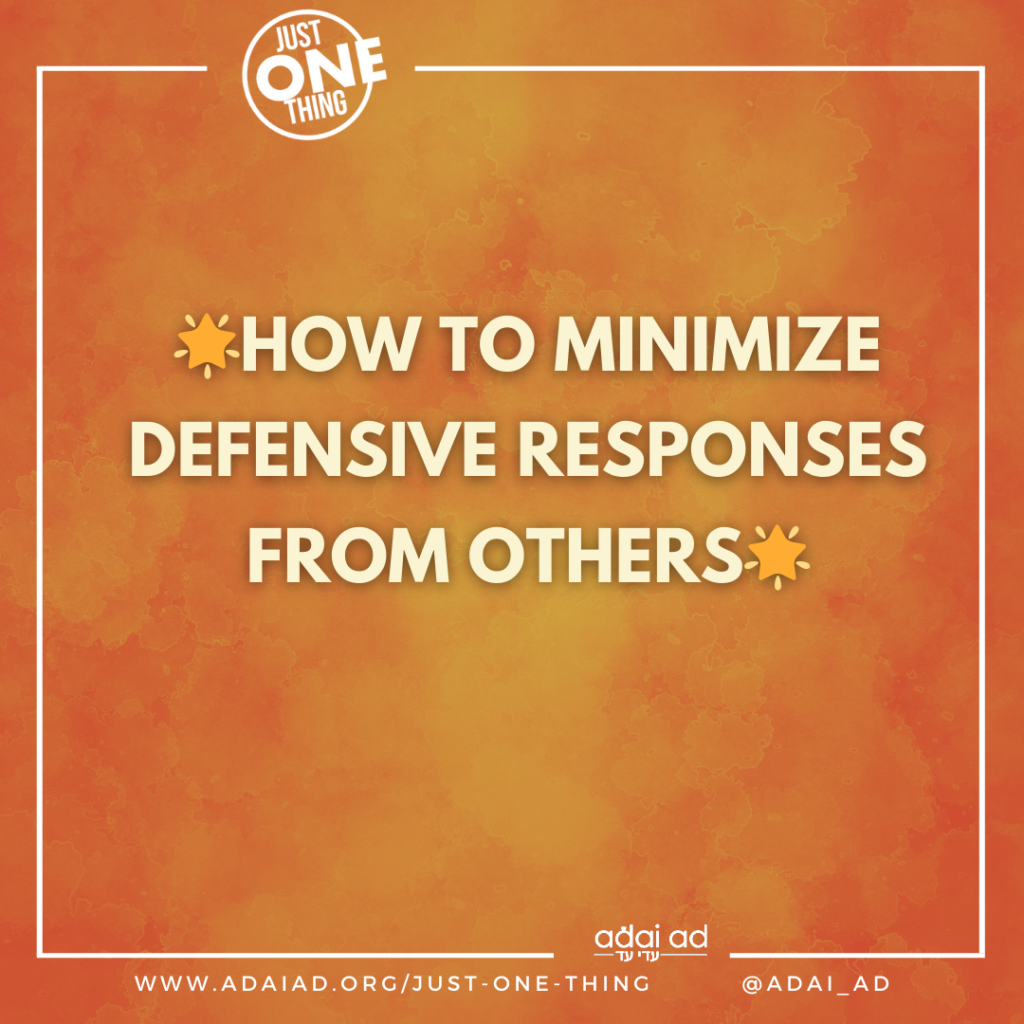When trying to address a sensitive topic or give feedback, our words matter. To reduce the likelihood of triggering a defensive response, try these strategies:
- Use “I” Statements Instead of “You”
When we use “you” statements, it can feel accusatory to the other person, triggering a defensive reaction. For example, instead of saying, “You always interrupt me,” say, “I feel unheard when I’m interrupted.” This shifts the focus from blaming to expressing your feelings. - Avoid Saying “Need to”
Telling someone they “need to” do something can feel like a demand and can cause them to shut down. Instead, try, “Can we try to…” or “I’d like to see if we could…” This creates a sense of partnership and flexibility, making the conversation feel more collaborative. - Skip “Why” and Use “How” or “What”
Asking “why” can sound like you’re questioning someone’s reasoning or challenging them. Instead, ask, “How did you come to that conclusion?” or “What led you to think that?” These questions are less confrontational and open the door for understanding. - Focus on the Object, Not “You”
Rather than pointing the finger at the person, focus on the situation or the issue. For example, instead of saying, “You packed in too much into the schedule,” say, “The schedule feels overwhelming with so many things packed in.” This way, you’re addressing the situation itself, not accusing your spouse, and allowing for a more constructive discussion.
By being mindful of how you word things, you can foster a more open, less defensive conversation, creating space for collaboration rather than conflict.


